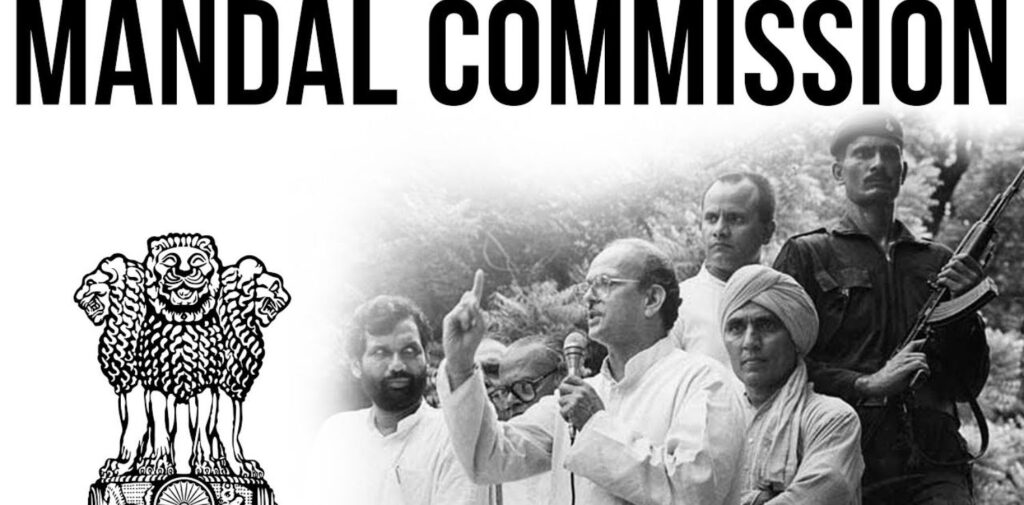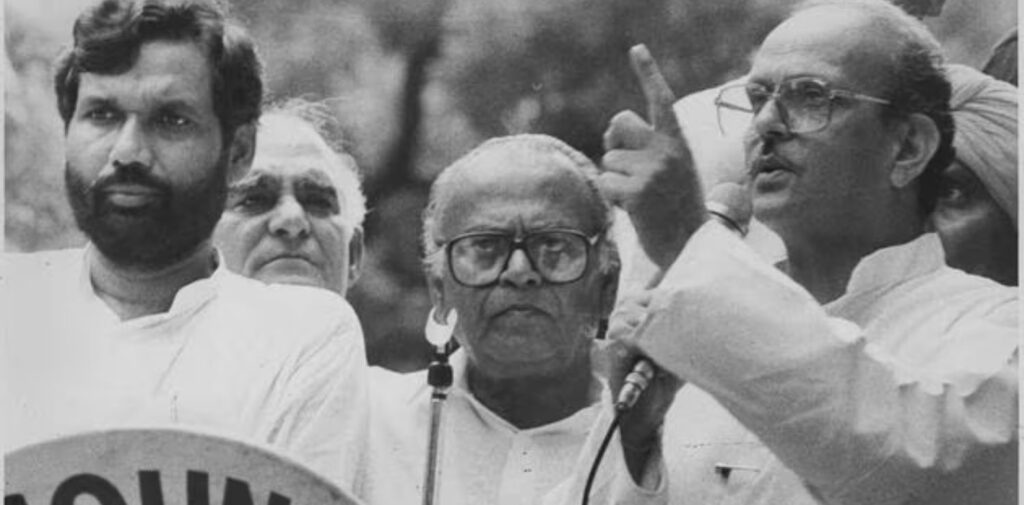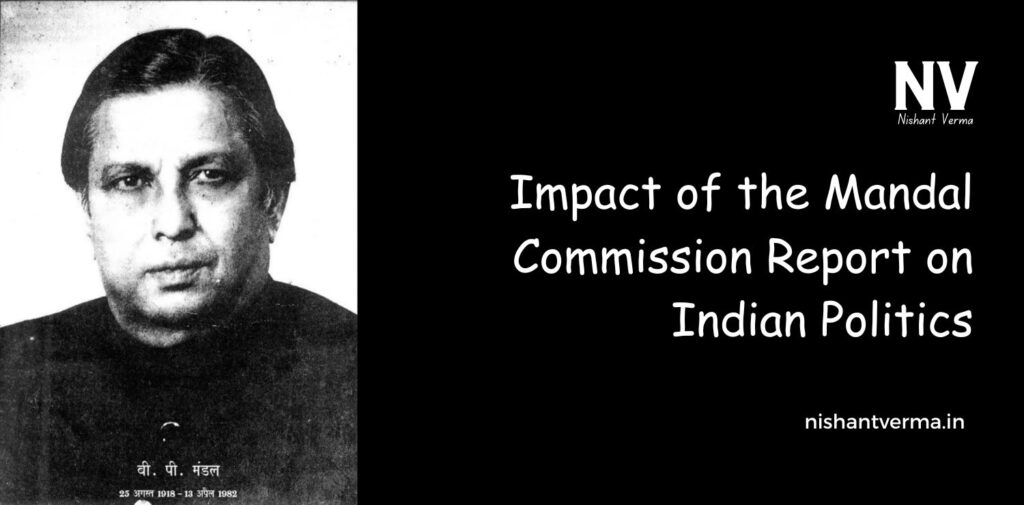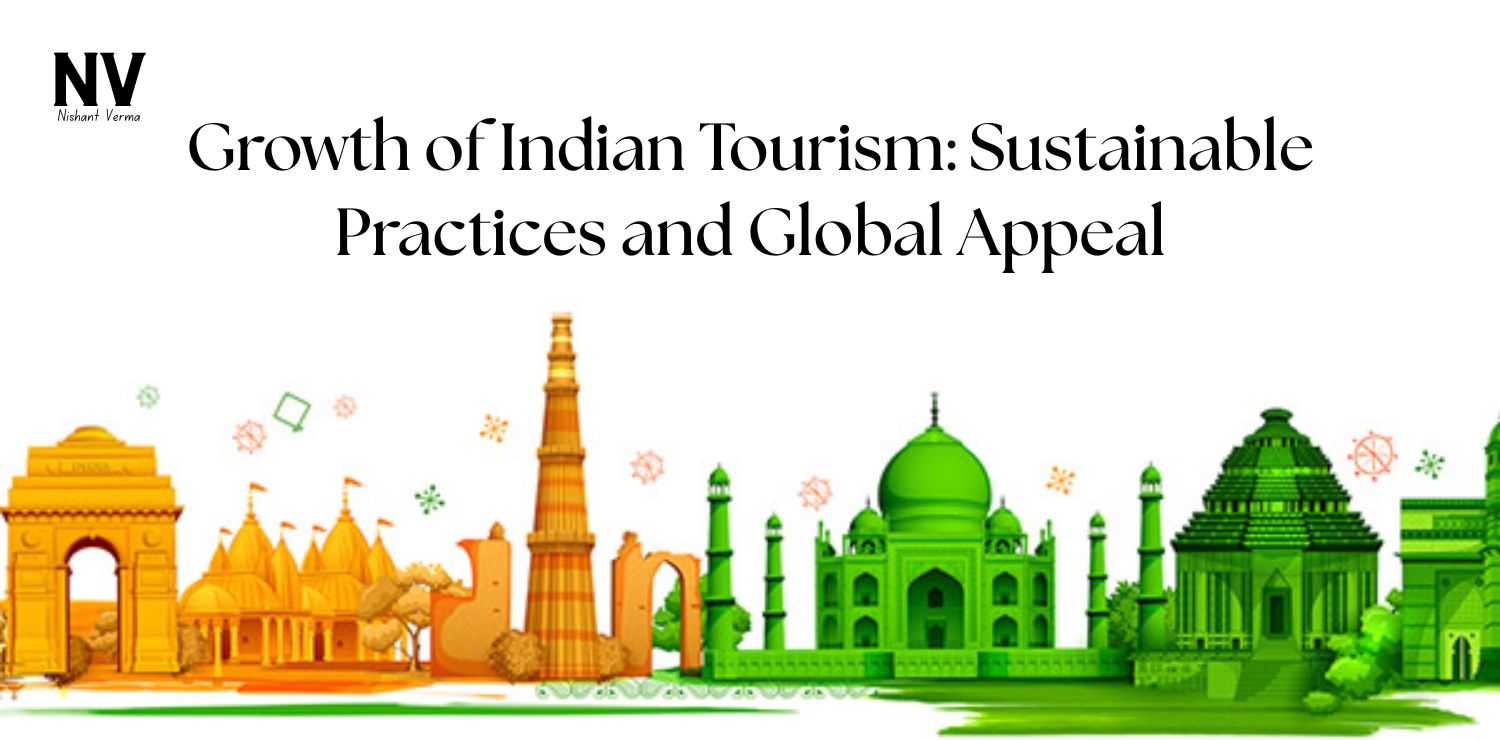India is a diverse country with people from different religions, castes, and backgrounds. The Indian government has always faced challenges when it comes to ensuring equality for all its citizens. One of the most important events in Indian politics that aimed to solve issues related to caste-based inequality was the Mandal Commission Report. This report had a huge impact on Indian politics, and it still affects the country today.
In this article, we will explain the Mandal Commission, its findings, and how it changed Indian politics in simple and easy language.
What is the Mandal Commission?
To understand the impact of the Mandal Commission, let’s first talk about what the commission was and why it was set up. In 1979, the Indian government set up a committee called the Mandal Commission, named after its chairman, B.P. Mandal. The main goal of the commission was to study the condition of the Backward Classes in India and recommend measures to improve their situation.
In India, people are divided into different castes. Some castes are considered more privileged, while others are considered backward or disadvantaged. The backward classes, also known as Other Backward Classes (OBCs), faced many challenges like limited access to education, jobs, and other opportunities. The Mandal Commission was created to find out how to help these backward classes and improve their lives.

The Findings of the Mandal Commission
After two years of research and study, the Mandal Commission came up with its findings in 1980. The report revealed that a large portion of India’s population belonged to the OBCs and faced discrimination and social injustice. The commission recommended that these backward classes should be given special treatment to ensure they could get better opportunities in education and employment.
One of the most important recommendations of the Mandal Commission was that 27% of government jobs should be reserved for the OBCs. This meant that a certain percentage of jobs in government offices, schools, and other public services should be given to people from backward classes.
This was a huge step towards ensuring equality, as it aimed to provide opportunities to people who had been neglected for years. The Mandal Commission also recommended that other groups, like Scheduled Castes (SCs) and Scheduled Tribes (STs), continue to get reservations as they had been doing since the 1950s.
The Controversy and Reactions
When the Mandal Commission Report was released, it sparked a massive debate across India. Many people supported the report, saying that it was a much-needed step to help those who had been historically oppressed. However, there were also many people who opposed it.
One of the biggest reasons for the opposition was that people from the General Category (the so-called “upper castes”) felt that this reservation would take away opportunities from them. They believed that merit (or ability) should be the only factor in getting jobs, and that reservations based on caste were unfair.
This disagreement led to massive protests across the country. In 1990, when the government of Prime Minister Vishwanath Pratap Singh decided to implement the Mandal Commission’s recommendations, there were huge protests from students and youth, especially in the cities. Thousands of students took to the streets, demanding that the reservation system be stopped. The protests became violent in some places, and many students even lost their lives.
The Implementation of the Mandal Commission Report
Despite the protests and opposition, the government decided to move forward with the recommendations of the Mandal Commission. In 1991, Prime Minister Vishwanath Pratap Singh announced that 27% of government jobs would be reserved for OBCs. This was a historic moment in Indian politics because it directly addressed the issues of caste-based discrimination and worked towards creating a more equal society.
While the decision was highly controversial, it also marked a significant change in how the Indian government approached issues of caste, equality, and social justice.

The Long-Term Impact on Indian Politics
The Mandal Commission Report had a deep and lasting impact on Indian politics. Let’s take a look at how it changed the political landscape:
- Rise of OBC Political Leaders: One of the major consequences of the Mandal Commission was the rise of OBC political leaders. The recommendation for reservations gave a voice to many people from backward classes. Leaders like Lalu Prasad Yadav, Mulayam Singh Yadav, and Nitish Kumar gained popularity in the Hindi-speaking states of North India. They mobilized the OBC vote and became key players in Indian politics. Their rise led to a shift in political power, especially in states like Bihar, Uttar Pradesh, and Madhya Pradesh.
- Strengthening of Regional Parties: The implementation of reservations led to the strengthening of regional parties, which were able to secure the support of the OBCs and other backward communities. In many states, regional parties started to gain power as they became the voice of the backward classes. This changed the political dynamics in India, where the dominance of national parties like the Congress and BJP was challenged.
- Increased Representation of Backward Classes: The Mandal Commission led to an increase in the representation of OBCs in government jobs and educational institutions. More students from backward classes were able to go to college, and many found employment in government sectors. This helped improve their economic condition and gave them more opportunities for social mobility.
- Debate on Merit vs. Reservation: The Mandal Commission also sparked a long-running debate in India about merit and reservation. Some people argued that reservation was necessary to uplift the backward classes, while others felt that it led to mediocrity and reduced competition. The debate continues to this day, with many still questioning the fairness and effectiveness of the reservation system.
- Social and Economic Change: Over time, the implementation of the Mandal Commission’s recommendations helped reduce social and economic inequality in India. People from backward classes started to get better education and better jobs. This helped them break out of the cycle of poverty and improve their quality of life.

The Mandal Commission in Today’s India
The Mandal Commission Report continues to have an impact on India’s politics even today. Many political parties still appeal to the OBCs and backward classes for their support. The reservation system, though controversial, remains an important tool for social justice in India.
However, the debate around caste-based reservations has not ended. Some people believe that reservations should be based on economic status rather than caste, while others argue that the caste system still affects many people’s lives and reservations are necessary for equality.
Conclusion
The Mandal Commission Report was a turning point in Indian politics. It brought attention to the problems faced by the backward classes and provided them with the tools to fight for their rights. While it led to many protests and debates, it also brought about important changes in the way India looked at caste and social equality.
The Mandal Commission’s impact on Indian politics can still be seen today in the rise of OBC political leaders, the strengthening of regional parties, and the ongoing debates about reservations and merit. No matter how you feel about it, the Mandal Commission Report was a big moment in India’s journey toward equality and social justice.




